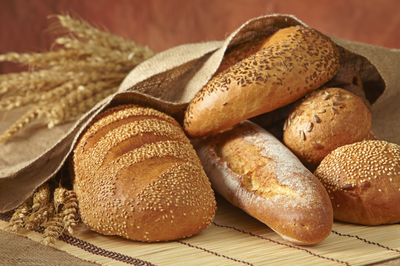|
We left town last Sunday after church, so I was not able to post last Sunday's sermon right away. Glad to have a chance to make it live ahead of this coming Sunday!
Scripture text: Luke 23:33-43 Today, on the Last Sunday after Pentecost, we celebrate the Feast of Christ the King. We’ll begin by looking at the Feast itself - its origin and history. Then, we’ll move to Scripture, in order to answer the question “What sort of king is Jesus?” Finally, as always, we’ll explore what it means for us that Christ is King. The Feast of Christ the King is one of the newest feasts in our Christian calendar. Pope Pius XI began writing at length about Jesus Christ as King in the aftermath of World War I. Pius deplored the rise of class divisions and unbridled nationalism. Looking at the chaos and destruction that followed that war, he became convinced that individuals must allow Jesus to reign over their whole lives - their minds, wills, hearts, and bodies. (Adapted from Ubi arcano Dei consilio, 1922 and Quas Primas, 1925) Pius XI officially named a Feast of Christ the King in 1925. It was moved to its current location in the liturgical calendar, and is now celebrated in many denominations around the world, including many Episcopal, Roman Catholic, Lutheran, Presbyterian, Methodist and Moravian churches. The Feast of Christ the King invites Christians to re-order our lives according the the teachings and values of Christ and his Kingdom. Let’s turn to scripture to learn more about Christ the King. If Christ is truly king over all, then Christ must have a kingdom. What does this kingdom look like? In Luke’s Gospel alone, the image of the kingdom of God appears 43 different times! It’s most often linked to justice for the oppressed, help for the poor, and food for the hungry. When Jesus acts on behalf of the oppressed, the poor and the hungry, He says, “The Kingdom of God has come near.” In another place in Luke’s Gospel, Jesus describes the Kingdom of God as belonging to little children. He also says that it’s like bread dough that is mixed with yeast so that it rises. The Kingdom of God is active and transformative. This morning’s Gospel passage, designated for Christ the King Sunday in our Lectionary Year C, presents us with a shocking image of Christ as King. Today, we encounter Jesus on the cross. He has been stripped of all he has, tortured, humiliated, and he is being executed at the hands of the Roman government. We often think of rulers and leaders as having power and prestige. Many rulers and leaders behave with great entitlement. The crucifixion of Christ is the opposite of power, prestige, and entitlement. Instead, we see Christ the King yielding. We see him behaving with humility and lowliness. We see him suffering without complaint. These are the ways that Christ is King. Finally, in his first letter to Timothy, St. Paul describes Christ as “King of King and Lord of Lords.” This is Paul’s way of saying that Christ rules, as King, over every person on earth. Even other kings. Even people with power and prestige. Even the Roman Emperor. Roman leaders crucified Jesus. At the time that Paul was writing, the Romans were continuing their persecution of Christians. Rome would eventually put Paul to death. No matter how difficult things are, Christ and his values are the “King of Kings and Lord of Lords.” Now that we have a greater understanding of the purpose of this Feast Day, and we have some understanding of how Christ is King, what does that mean for us? The examples of the Kingdom of God from Luke’s Gospel speak to our core values. We know that the Kingdom of God is among us when the oppressed receive justice. We know that the Kingdom of God is among us when the hungry are fed. These are the same values that spoke to Pope Pius in the aftermath of World War I. In response to the death and destruction brought about by that horrific World War, he called on Christians to align their lives with the values of the Kingdom of God. When we work in Christ’s name on behalf of those who are in need, we are honoring Christ as King and his Kingdom. When we turn to this morning’s reading about the crucifixion, it could be easy to say that this story does not speak to us. We aren’t leaders and rulers. At this moment in time, none of us is facing capital punishment. But, speaking for myself, there are certainly times when I am in danger of taking advantage the power and prestige that I have been given. There are times when my sense of entitlement gets in the way, and prevents me from behaving according to the values of the Kingdom of God. When we live into the values of God’s Kingdom, our lives are characterized by the words that describe Jesus on the cross - yielding, humble, lowly. Finally, turing back to Pope Pius, this Feast Day provides us with guidance about how we should order our lives. Pius wrote, “Not one of our faculties is exempt from his empire.” And Pius goes on to say that all of our lives - our minds, our will, our hearts, and our bodies - are to be wholly subject to Christ. Being subject to something or someone is difficult for Americans. In November of 2010, David and I were on our honeymoon in England. On Christ the King Sunday, we were with our friend Rod, who is an Anglican priest. He preached a great sermon. At lunch after church, Rod said to us, “You Yanks don’t do well with Christ the King - you aren’t used to having Kings.” We laughed - and realized that Rod was totally right. We don’t like being told what to do. There’s a strong strain of individualism among us. We take pride in being our own people. As Christians, we give up some of that privilege. A collect in our prayer book says it this way, “ By his grace we are able to triumph over every evil and to live no longer for ourselves alone, but for him who died for us and rose again.” That’s what it means for us to be subject to Christ the King. Friends, we need Christ the King. We are invited to place ourselves - our hearts and minds and souls and bodies - under Christ the King. We are invited to allow Christ to shape our values. We are invited to ask Christ for the grace to be yielding and humble when those traits are needed. Our world needs the values of the Kingdom of God. And we are called to be the bearers of God’s Kingdom in this age.
0 Comments
|
AuthorI'm Fran Gardner-Smith. I'm an Episcopal priest, a wife, a grandmother, a feminist, a writer, and an artist. Archives
April 2020
Categories |
Proudly powered by Weebly



 RSS Feed
RSS Feed